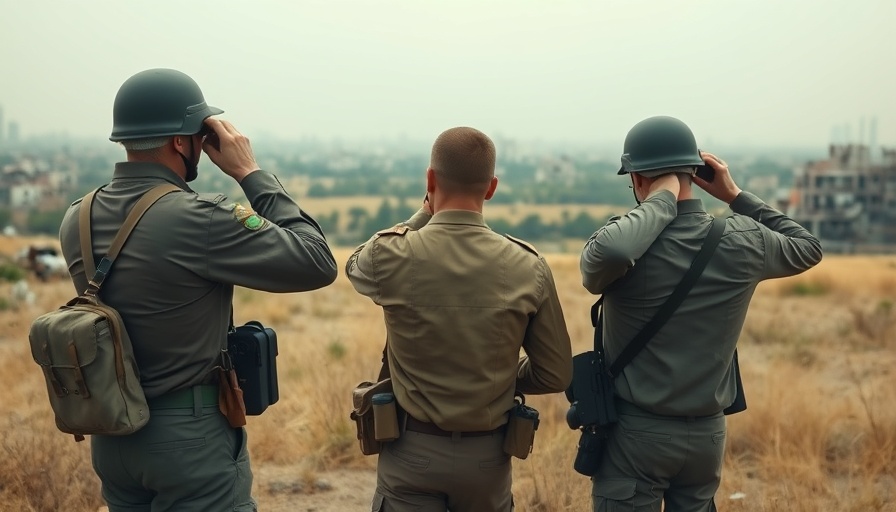
Escalating Tensions in Gaza: Understanding the Current Offensive
The recent escalation in Gaza has thrust the region back into the global spotlight as Israel embarks on a significant military offensive. Dubbed the 'initial stages' of an extended military action, the Israeli Defense Forces (IDF) have intensified operations in Gaza City, which has been declared a combat zone fraught with danger.
Human Impact: Hostage Recovery and Family Heartbreak
With the IDF's announcement of halted midday pauses for humanitarian aid, the humanitarian crisis in Gaza is visible against the backdrop of military confrontation. Reports indicate that the Israeli military has recovered the body of one hostage and the remains of another. This news elicits mixed feelings; for families like the Weiss family, it provides a bittersweet closure amidst ongoing anguish. Rubi Chen, a father of one of the hostages, expressed the emotional turmoil faced by families still waiting for news, calling the return of the body “a stab in the stomach.” This highlights the profound personal tragedies that emerge from complex geopolitical conflicts.
A Contextual Overview: The Geo-Political Landscape
The conflict in the Gaza Strip, especially in its most recent phase, invites examination of its historical and political underpinnings. The Israeli-Palestinian conflict is one fraught with territorial disagreements, deep-seated animosities, and intermittent violence. The recent offensive is a continuation of Israel's attempts to neutralize what it perceives as threats from Hamas, which governs Gaza. Yet, this cycle of violence raises questions about the long-term solutions and routes to peace, particularly considering the widespread civilian suffering.
International Responses: Echoes of Condemnation
The international community has reacted with condemnation to the renewed offensive. Countries and organizations have called for immediate ceasefires and the protection of civilians. This call is not merely for humanitarian reasons but also underscores the need for a sustainable resolution to prevent further escalations. Critics argue that military action alone will not resolve the tensions but rather perpetuate the cycle of violence and retaliation.
Future Predictions and Broader Implications
As military actions continue to unfold, insights suggest that future responses will hinge largely on international diplomatic efforts alongside military strategies. The trajectory of this conflict is uncertain, with possibilities of more extensive military campaigns or renewed peace talks simultaneously emerging. The focus remains on humanitarian outcomes; will the international community find a way to broker peace before more lives are lost?
A Call for Understanding and Action
For those affected by the ongoing conflict, the need for comprehensive humanitarian aid is urgent. As the world watches, advocates are pushing for better treatment of civilians and accountability for actions taken in conflict. Engaging in dialogue about the roots of this conflict, encouraging diplomatic resolutions, and supporting humanitarian assistance are critical steps forward.
This tragic situation illustrates the broader humanitarian crises often overshadowed by political discourse, urging us to reflect on our strategies for advocacy and support for those most affected by conflict.
 Add Row
Add Row  Add
Add 




Write A Comment